In March 2020 we shared a post titled “Doing Our Part: A Student’s Perspective on Coronavirus,” written by one of our grade 8 students at BASIS International School Hangzhou. This follow up post captures not only reflections on how the novel coronavirus has changed the world, but how we can use this time to reflect on our own countries and learn more about how to share our culture with others.
In the Post COVID-19 Era
The German scientist Alexander von Humboldt once said “The worldview of the person who has not seen the world is dangerous.” I believe that Humboldt wanted to see the world–not just to travel it–in order to discover the immensity of our planet, the immensity of the ocean of knowledge, and to be humble, and to observe, and to explore, and to think.
In 2020, the Novel Coronavirus outbreak has brought about unprecedented challenges to the whole world. The blue planet we live on, with its traditional social form, economic model, international relations, public health, and many other aspects, have all been greatly impacted.
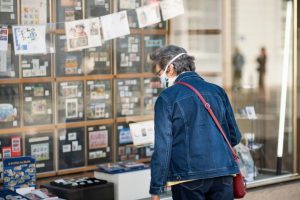
My school, BASIS International School Hangzhou, has a diverse and cross-cultural community of teachers. Everyone was worried that the epidemic would have a big impact on our school life. At the beginning of the epidemic, our headmaster was the first to return to the campus. Afterwards the guidance work of the school was carried out in an orderly manner. Each email made students, parents, and foreign teachers around the world feel very warm. The online courses carried on normally as the foreign teachers returned to the team. With a stable faculty, the school successfully completed the entire semester’s learning goal.
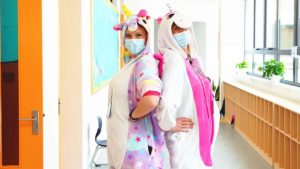
We thought that after the spring life would return to its usual routine. No one could imagine that the continuation of the epidemic overseas has caused some anti-globalization and nationalistic sentiments to rise around the world, and a fortress of clear boundaries has been erected in our global village.
With the spread of the epidemic, our overseas travel and international studies continue to come to a standstill. Indeed, the experience of walking is once again replaced by the desire to be far away. Nevertheless, exploring the world doesn’t mean traveling far, and the current relatively contradictory international situation makes me think that to explore the world, we should first explore our own country and understand our own hometown.
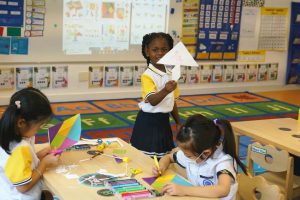
Though most of my fellow students are also from China, there are students of different ethnic, cultural, and family backgrounds from all over the world live and study together, which is a unique feature of all BASIS International Schools. It is to our advantage that we are able to discuss international issues and carry out cross-cultural communication in this “small United Nations,” and it is also one of the core educational concepts of “unity of knowledge and practice.” But the deeper I dig, the more often I ask myself: “How much do I really know about my country, my region, and home city?” Can I “really represent” China and Hangzhou when I frequently communicate with foreign students?
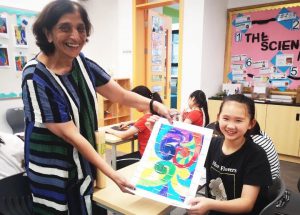
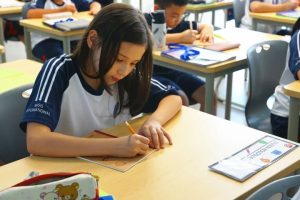
In history class when we discuss the origin of ideas, our western classmates will talk about Socrates and Aristotle. Can I introduce Chinese Confucianism and The Tao Te Ching clearly to them? How do you introduce the Chinese Lunar New Year to foreign students? And why do Chinese people celebrate the Spring Festival? What does it have to do with farming civilization? What are the customs of the Chinese people in different provinces and regions? When my foreign classmates asked me these questions, I didn’t have the guts to answer them.
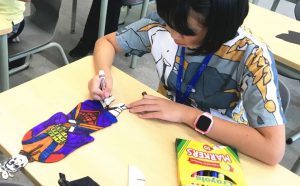
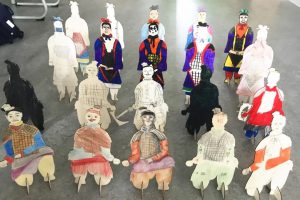
It is in the multicultural environment of BASIS International Schools that this “identity crisis” drives me to learn more about my own country. I want to better understand China’s position in the world, the advantages we have, and the opportunities for me to grow in the world.
This year we have such an opportunity. Many countries in the world have not yet been able to control the pandemic, but traveling in China is already relatively safe. We should seize the opportunity to learn more about the changes brought about by China’s culture, history, local conditions and customs, economic development and technological progress. In this way, when we go abroad, we will have a stronger recognition of our own identity and country, and carry out cross-cultural communication and exploration more confidently.
Based on such thinking, I traveled to several domestic cities during the summer vacation so that I could learn more about different regional cultures of China and get in touch with various local customs and practices. At home, I often play this game: I open the map of China and place my finger on it. I then look at where my finger goes. How much do I know about this place? If I don’t know, what methods can I use to deepen my understanding? I also try to analyze the diversity and representativeness of China’s world cultural heritage and non-material cultural heritage, looking into the similarities and differences with neighboring countries.

At a time when China’s development is attracting more and more attention in the world, when China’s voice is getting louder and louder on the international stage, it is my duty to be a messenger of friendship and share what I have seen and heard with more friends who want to know the real China.
My parents have taught me since childhood that a person’s contribution lies in how to make the most of his resources, not only property, but also knowledge, energy, and activity ability. Looking back years later, we should be grateful for this experience when we were teenagers, because hardship and suffering are the foundation of future success in life.

The world in BASIS International Schools students’ minds should not only be the world of geographical space, but also the world of knowledge. The world of geographical space is inseparable from the world of knowledge. Now that we can’t go far for a while, it’s time to slow down and explore the world in another form. By knowing where your roots are, you can go abroad with more confidence.
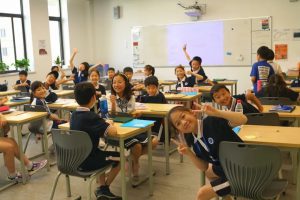
We often say: how big the heart is, how big the world is.
Perhaps we can never predict the direction the world will take. However, our small ideas can always light up a confused and lonely future. May we think diligently and truly fulfill the educational concept of “unity of knowledge and practice,” contributing a little bit of valuable change and creation to the world, and bringing happiness and laughter to more people all over the world.
Lily Z. is a grade 8 student at BASIS International School Hangzhou. Read more from her in the post “Doing Our Part: A Student’s Perspective on Coronavirus” here.
Further Thoughts from grade 8 English teacher Jack Porter
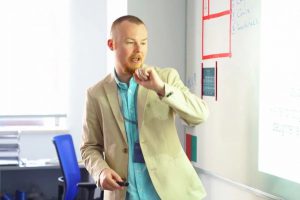
Lily takes us on a journey into the heart of what it means to be a BASIS International Schools student and how the struggles and challenges our students face daily were dramatically increased by the pandemic. We are also introduced to the negative effects of the virus as is struck on a global scale. We also learn about the disruption to travel and everyday routines, and we are educated about how the virus has forced people to become trapped, both literally and figuratively.
Despite all of this, and what I found so encouraging, was the unceasing positivity and hope that shone throughout Lily’s words. We learn that no matter the challenges we have faced, no matter the destruction we have witnessed, and no matter the pain that we have experienced over these dark months, we will not be defeated, and we will not give up. These are not just empty words and baseless rhetoric. Lily details countless examples of both staff and students facing down the virus with courage and bravery.
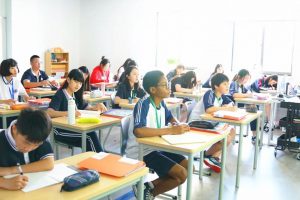
This leads to, what I believe to be, the crucial message of Lily’s essay.
We use our intelligence and shared knowledge to overcome these seemingly unsurmountable obstacles. Isn’t that what BASIS International Schools is? A mixture of peoples, cultures, and histories all working together towards a common goal–the education of humanity.
Reading this essay made me proud to be part of BASIS International Schools, but more than that, it made me proud to be human. Thank you Lily.
Learn more about careers with BASIS International Schools on our careers website.